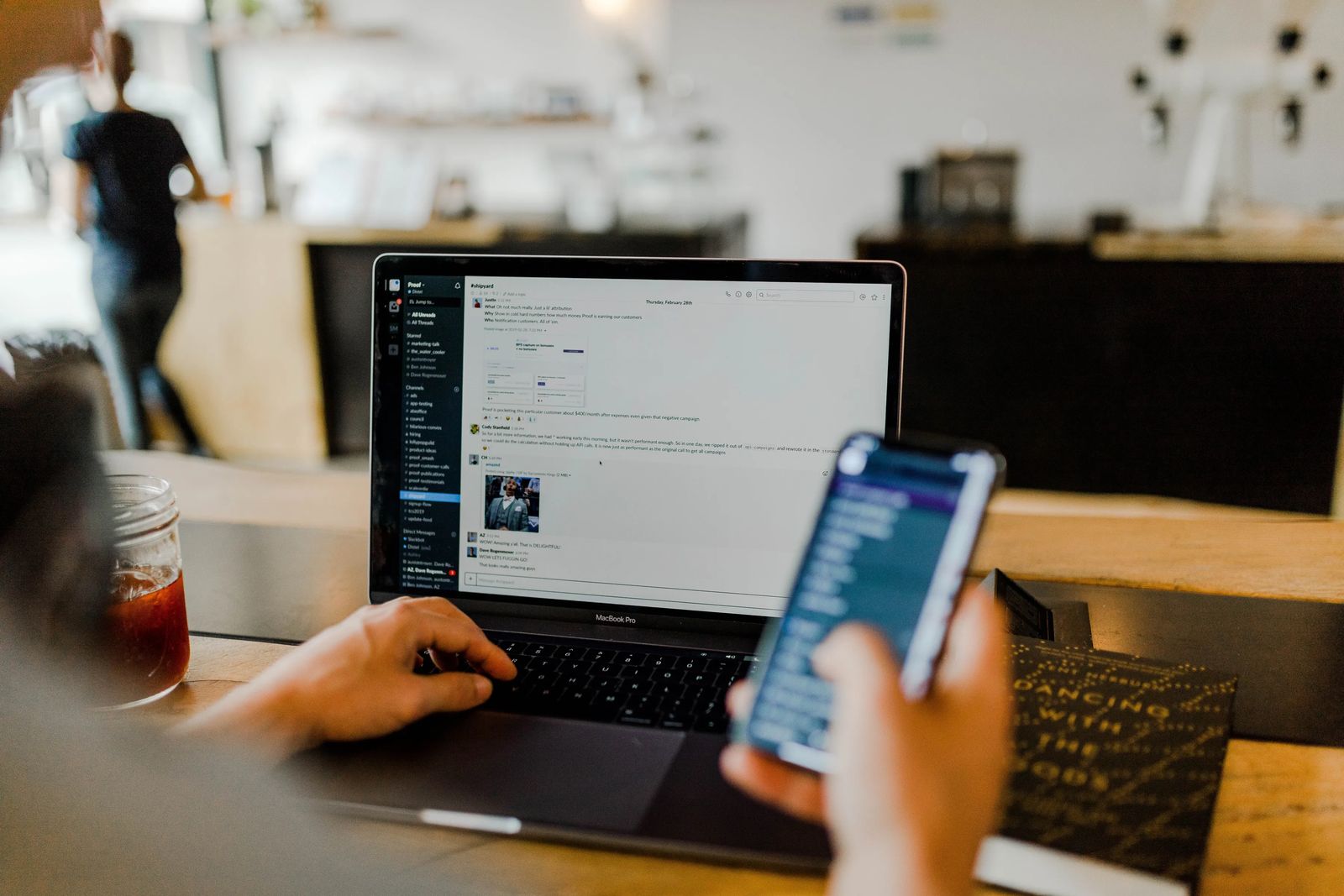
Photo by Austin Distel on Unsplash
The Psychology of Social Media: How the Internet is Affecting Our Behavior and Relationships
May 8, 2023
by frisian acebo, guest contributor
Over the past two decades, social media has rapidly evolved and become integral to our daily lives. It has allowed us to connect with people worldwide, share information, and express ourselves in previously unimaginable ways. However, this digital revolution has also profoundly impacted our behavior and relationships. This article will explore social media's psychological effects and how it shapes how we interact with others.
The Fear of Missing Out (FOMO)
It’s not just another slang acronym - the fear of missing out is a prominent psychological effect of social media. FOMO refers to the anxiety that arises from the belief that others are experiencing more fulfilling lives. This fear can lead to a compulsive need to stay constantly connected to social media, continuously checking again.
FOMO is driven by social media platforms being designed to be addictive. Features like infinite scrolling, frequent push notifications, and personalized content all create a never-ending stream of tantalizing information. This flow keeps users constantly engaged. As a result, people begin to spend excessive amounts of time on social media. Unfortunately, this consumption may occur at the expense of other vital aspects of the person’s life, such as work, sleep, and face-to-face interaction.
The Need for Social Validation
Another one of the primary psychological drives behind social media usage is our inherent human need for social validation. Validation is our desire to be acknowledged and approved by others. Social media platforms capitalize on this psychological phenomenon by allowing users to gain "likes", "shares", and "follows." These tokens can serve as tangible, quantifiable indicators of social approval.
This constant quest to collect further validation from social media can lead to a phenomenon known as "social comparison." Social comparison occurs when a person measures their self-worth against the achievements and social status of others. Research has shown that excessive social comparison can create feelings of inadequacy, jealousy, and even depression. On top of this, the cherry-picked nature of social media content typically showcases an idealized version of reality, causing people to develop even more unrealistic expectations about their lives!
The Impact on Relationships
Social media has indeed made it easier than ever to connect with others. That said, it has also changed the way we create and keep up with relationships. One of the most significant changes is the shift from quality to quantity in our social interactions. Some social media platforms steer users towards accumulating large numbers of "friends" or "followers." This can create the illusion of meaningful connections. However, these superficial relationships often lack the depth and intimacy of face-to-face interactions.
As well as this, overuse of social media can lead to a drop in genuine empathy and emotional intelligence. Online communication often lacks essential non-verbal cues, such as tone of voice and facial expressions. Thus, having conversations online can result in misunderstandings and misinterpretations. The anonymity the internet provides can even create a sense of detachment. This leads to many individuals participating in aggressive or hurtful behavior without thinking about its effect on others.
Romantic relationships
Social media can also affect romantic relationships. Studies have found that excessive social media use can lead to increased feelings of jealousy, insecurity, and dissatisfaction in couples. This is partly due to the tendency of individuals to compare their relationships with idealized versions they see online, as well as the ease with which people can see current and past partners' activities and interactions.
The Effect on Mental Health
The psychological impact of social media extends beyond our behavior and relationships to our overall mental well-being. For example, multiple studies have pointed out a correlation between excessive social media use and increased levels of anxiety, depression, and loneliness. This is partly due to the issues mentioned above of social comparison, FOMO, and the decline in quality social interactions.
Additionally, the constant exposure to the highlights of other people's lives can foster a phenomenon known as "negative social comparison," in which individuals feel inferior when comparing themselves to others. This can contribute to a decline in self-esteem and a distorted self-image, which may have long-term repercussions on mental health.
Striking a Balance in a Digital World
Despite the potential pitfalls of social media, it is essential to recognize that it also provides numerous benefits. How would we have kept in touch during the pandemic without social media and the wide reaches of the Internet? The key to harnessing the positive aspects of social media while avoiding its adverse effects lies in finding the right balance.
Some ideas to help achieve this balance include setting limits on social media usage, engaging in regular digital detoxes, and prioritizing face-to-face interactions. It is also essential to learn how to think about the content we consume online and recognize that, just like other forms of media, social media is not a true reflection of reality.
Want to strike this balance with the internet in your own life? Compare NBN plans and find the right one for you.
In conclusion, the psychology of social media reveals a complex interplay between our innate human needs for connection, validation, and belonging and the design of digital platforms that exploit this psychology.

Guest Writer
Frisian is a mother of two and passionate about everything digital. Having worked with Compare Broadband, she is also an avid traveler. Apart from traveling, she is also a keen coffee enthusiast and has a passion for health & nature.
Guest writers are an important part of Simply Family Magazine. Do you want to write for us? Click here!




